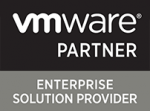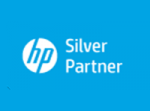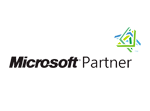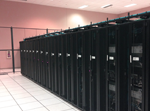What is a Colocation Data Center?
As your business keeps growing, you may need additional space, more bandwidth, and extra power to maintain and run your facility. To meet these needs, colocation is the best option for reducing capital expenditure. Colocation helps you to control your IT assets and simultaneously take advantage of the depth and breadth of your provider’s expertise in operating data centers. With Managed IT services, most businesses look at offloading support, maintenance, and technology upgrades. Companies can also benefit from supplementing network servers with managed storage solutions from colocation service providers.
A colocation data center is a physical facility offering space with proper power, cooling, and security to host computing hardware and servers of any business. This capacity covers anything from cages and cabinets to private suites. Generally, the hardware is owned by the providers and housed by the data center staff.
Colocation also means that a company can have its equipment located in several places. For instance, the company can have servers in three or four different colocation data centers. This is essential and beneficial for businesses that have huge geographic footprints, and those that want to ensure that their computer systems are located close to their physical offices.
3 Types of Colocation Facilities
1. Wholesale colocation
A tenant leases a completely built data center space, mostly at a cheaper rate than retail vendors, but with lower space requirements and power.
2. Retail colocation
A customer leases space inside a data center, usually a rack, space inside a rack, or a caged-off area.
3. Hybrid cloud-based colocation
This type of colocation data center is a combination of in-house and outsourced data center services.
To help you understand the significance of colocation data centers for your business, let’s take a look at some of the key reasons to move to a colocation facility.
• Up-to-date facility infrastructure responds to power, cooling, and environmental changes.
• Secured facility guarantees data integrity.
• Colocation service level agreements to guarantee that services are received as negotiated.
• Predictable and operational expenditure model.
• Flexibility and scalability that permits additional capacity to be brought on cheaply and quickly.
• Better access to power, capacity, and space.
• Access to qualified professionals focused on data center management and capable of managing your infrastructure.
5 Benefits of Colocation Data Center
The benefits discussed below will explain why a local colocation data center can be immensely beneficial to you and your business.
1. Cost of ownership
Colocation allows your business to save a significant amount of money as operational and security staff, power and networking costs, and cooling efforts are all considered beyond the expense of basic equipment.
2. Fewer technical staff
With colocation data centers, you no longer have to think about managing power, installing equipment, running cables, etc. In several cases, the colocation data center will also be able to perform other tasks as needed or replace components.
3. Risk management
Businesses use data centers as a data recovery strategy to reduce risk in the case of an external event like a natural disaster. Utilizing a colocation data center guarantees business continuity in case a major disaster occurs. This highlights the fact that your network traffic will not be affected if your business location loses power.
4. Easy scalability
As your business grows, you may be required to have new servers or other equipment added to the facility. This is one of the key benefits of using a colocation data center. On the other hand, expanding your facility can be more difficult when you have your equipment in a server closet or a small local data center.
5. Security and compliance
Security and regulatory requirements are vital for most organizations. A good colocation data center provides comprehensive measures to meet requirements like perimeter fencing, 24x7x365 in-house security officers, IP-DVR cameras, biometrics keycard scanners, and mantrap entries.
After obtaining a thorough understanding of the benefits a company can gain from colocation data centers, many companies are now opting for managed colocation options such as that of Network Medics. Unlike other providers, Network Medics provides round-the-clock service for disaster recovery, application hosting, site failover, web, or any business IT requirements that you may have. Network Medics will execute its colocation management duties. As such, you’ll get the device control that comes with standard colocation without the responsibilities, risks, and annoying inconveniences.
With Network Medics’ Managed Colocation Solution, You Get:
• Private cloud hosting and local servers
• Office 365 or Hosted Email solutions and management
• On-premise reactive or proactive technical support as required
• Management of computers, servers, network security, and Wi-Fi
• Software and hardware procurement with all warranty tracking
• Project planning and management
• VMWARE Virtualization and Microsoft Server consulting
• Co-managed ticketing system for projects, support, and reporting
• Round-the-clock support, security, backup, and monitoring
• Single “pane-of-glass” secure remote connection and reporting to all systems
Visit our websites and get to know more about Network Medics’ Managed Colocation Plans that Come With:
• Quality and performance
VitalVM VPS servers operate on highly redundant infrastructure with lightning-fast response times and no hidden bandwidth charges.
• Certified support
Get to the right engineer and make use of multiple help desks that will help you get what you want.
• 99.999% uptime
Network Medics’ SLA guarantees network, hardware, and infrastructure uptime of 99.999% in Tier 3 Minnesota-based data center.



 Questions about
Questions about








